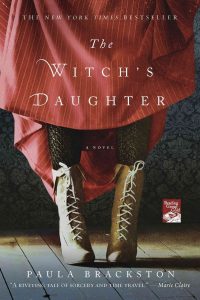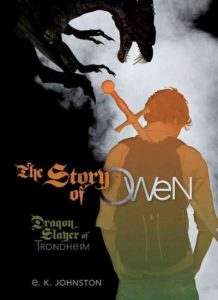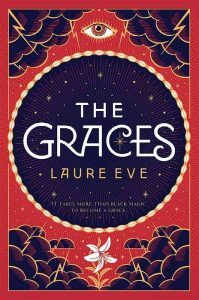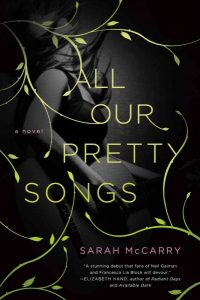See part one for general information on programming, including who can participate, how it’s selected, and where to find the information you’ll need to make a proposal.
Once you have an idea for a topic or two to present, you’ll need to decide on a format for your presentation. This post describes different presentation styles and offers some basic guidelines and tips for preparing proposals.
Sirens programming typically includes:
- Papers, Lectures, and Presentations
- Pre-Empaneled Papers
- Panels
- Roundtable Discussions
- Workshops
- Afternoon Classes
- Combination Presentations
Papers, Lectures, and Presentations
You might have written an essay, a research paper, an article, or an in-depth blog post that could become the basis for a paper, lecture, talk, or presentation. Most of the time, you’ll need to do some research and reading, and at minimum, you’ll need to come with speaking notes for yourself, even if you choose not to write a more formal paper. If you have a lot of information to present to an audience, a paper/lecture/presentation is probably the best presentation fit. It’s also a good presentation style choice for people who like to think things through in advance, and for people who like to organize and express their thoughts in writing or through reading. Analyses, research, comparisons, perspectives from literary and non-literary fields, theories, histories, arguments, deconstructions, critiques, and the like work well here.
Time allotted: 25 or 50 minutes for reading and any questions or discussion
A/V availability: Microphones will be provided. LCD projection will probably be available; however, projection is provided on a most-needed basis and not announced until after the final schedule is complete, so it’s best to plan your paper, lecture, or presentation as though you won’t be able to show slides, just in case. If you do wish to use projection, be sure to note in your proposal how and why you’d use it to support your presentation, so we can use that information when arranging equipment.
If projection is offered once the schedule is complete, you’re welcome to use it even if you didn’t request it!
Other considerations:
- We don’t require you to write a paper, or to turn in your paper to Sirens, but we strongly encourage you to prepare a written document. It’s helpful to have some text even if you plan to wing it during your presentation and speak more informally. The paper will be eligible for inclusion and publication in the post-conference compendium.
- Papers are usually written by a single author, but co-authors and author groups are welcome! At least one author must attend the conference to make the presentation.
- Prepare for a 25- or 50-minute time block. If you include 5–10 minutes for questions and discussion following the presentation, that’s roughly 6–10 double-spaced pages (or 2000–3000 words) for the 25-minute block, and 10–15 double-spaced pages (or 3000–5000 words) for the 50-minute block.
Pre-empaneled Papers
If you and your friends, colleagues, or acquaintances have a set of papers, lectures, essays, or speeches, and you would like to offer these as a group (or you want to ensure that you present sequentially as part of the same time block), you may present these as pre-empaneled papers by submitting a single proposal. The information about papers above applies here as well. We encourage pre-empaneled papers to have a connecting theme—a particular author or series, depictions of female warriors in graphic novels, gender in fairy stories, subverted monster tropes, analyses of character relationships in fantasy, and so on. Another idea might be to take on different approaches to the same subject, such as the application of different theories to the reading of a story, or different professional approaches and reactions to that story. You could combine two or three essays about justice, or economics, or organization in fantasy. There are lots of ways to approach pre-empaneled papers!
Time allotted: 50 minutes; however, sets of three or more papers may be allotted additional time
A/V availability: Microphones will be provided. LCD projection will probably be available; however, projection is provided on a most-needed basis and not announced until after the final schedule is complete, so it’s best to plan your paper, lecture, or presentation as though you won’t be able to show slides, just in case. If you do wish to use projection, be sure to note in your proposal how and why you’d use it to support your presentation, so we can use that information when arranging equipment.
If projection is offered once the schedule is complete, you’re welcome to use it even if you didn’t request it!
Other considerations:
- One member of your group will make the initial proposal, and provide information about their own paper and the group’s overarching theme, if any; then, the other group members will be contacted for more information about their individual parts of the presentation, including their individual proposal abstracts.
- The structure and use of the 50-minute period for reading and questions is up to the panel.
- A set of pre-empaneled papers can have an active or an inactive moderator. An active moderator might lead a brief question-and-answer period for each paper, or ask questions of all of the panelists between their presentations. An inactive moderator might be the point of contact for the panel, and during the conference, they might just introduce each panelist and paper in turn. The moderator might make only a very brief statement on the topic and then introduce the panelists for longer speeches, or they might also act as a panelist and deliver their own lecture or paper. The structure is up to the group.
- We recommend that 2–3 papers, lectures, or presentations (or some combination) be included in a set of pre-empaneled papers. That gives you time to read your papers—or excerpts from your papers—and time for discussion. If you have three or more presenters, we will give you more time for your presentation than the 50-minute time block.
Panels
Panels are discussions among 3–5 people. For the most part, the panel’s moderator directs the discussion: they ask questions of the panelists and ask follow-up questions to keep the conversation flowing; they ensure that each panelist has the chance to speak; they have plenty of provocative questions to ask to fill silences; and they keep everyone on topic and on time. The moderator is also the one to decide whether and when to take questions from the audience during the presentation. Panels are great choices for topics that benefit from multiple perspectives or types of expertise, for people who—though they’ll prepare in advance—like to share information through discussion, and for people who enjoy asking questions of and moderating a small group, rather than a large one. Panels are best suited for gathering several people with relevant experience in an area, for weighing pros and cons, for sharing very different viewpoints, for debating, and so on.
Time allotted: 50 minutes
A/V availability: Microphones will be provided (panelists may have to share). Because the panel is focused on discussion, projection is less likely to be available than it might be for other types of presentations. You’re welcome to request it; however, please remember that LCD projectors are prioritized for presentations where visual examples are an integral part of the session. (If you need to have a lot of visuals, your group might prefer to propose a presentation; each person could provide a few minutes of information and discussion on your topic.) If you do wish to use projection, be sure to note in your proposal how and why you’d use it to support your presentation, so we can use that information when arranging equipment.
Other considerations:
- One member of the panel will make the initial proposal, provide the general summary and abstract for the panel, and serve as the de facto moderator and contact person for the panel. Then, the other group members will be contacted to provide a supplemental abstract or other analytic response to the panel abstract, as well as their personal information. When panelists respond to the invitation to join the panel, they’ll review the panel’s main summary, abstract, and any sample questions, and then be asked to respond to the abstract/theme or to provided questions.
- It’s okay to wrap up early if the panel comes to a natural stopping point, but the moderator and panelists should prepare for at least 35–40 minutes of discussion, with significantly more time devoted to panelist discussion than audience questions.
- The majority of the discussion should be generated by the moderator and panelists, rather than drawn from audience questions. Panelists are the experts—if you will, the guests on the talk show. They should think about the panel topic in advance, make notes if necessary, and consider bringing their own questions for the other panelists. To put it another way, the strongest panels come from having prepared a good discussion to fill at least 2/3 of the time, and then letting the audience build upon the discussion with questions, rather than leaving the structure to the mercy of audience questions!
Roundtable Discussions
Roundtable discussions involve everyone at the presentation. In a roundtable discussion, the moderator comes prepared with a set of open-ended questions to be answered by the audience. The discussion is the purpose of the presentation; the moderator engages the audience members and directs the conversation. Roundtable discussions might work best when they’re constructed in such a way that an attendee doesn’t have to be an expert on the topic to participate; they seem to work best for broader topics, where attendees can offer up examples from many sources. (A good way of thinking about it might be that friendships in a specific set of books could become the basis for a good paper, and friendships in fantasy in general might work better for a roundtable.) This style of presentation can be a great choice for people who like to listen, but aren’t afraid to jump in to keep things on topic. Be prepared: Discussions can range from docile to very spirited! Roundtable discussions are well-suited to open-ended questions on subjective analyses, book/character explorations, and conversations where the audience’s knowledge and opinions are of highest importance.
Time allotted: 50 minutes
A/V availability: No microphones or projection are provided for roundtables; these presentations are scheduled for smaller rooms and a limited audience. We do provide a small dry-erase board and marker.
Other considerations:
- A roundtable discussion can have only one moderator. We’ve found that the discussions flow more easily when there is just one person acting as moderator, and that the discussions are much better received by the participants when they have only one person “in charge.”
- We recommend preparing at least ten thoughtful, open-ended questions and follow-ups to fill a 50-minute block. You’ll probably find that this is plenty—your audience will often have questions of their own to pose—but you can, of course, prepare a few extras.
- Roundtable discussions are designed to be like the discussion session of a big university class. We want these discussions to be very participatory, and we want everyone in attendance to have a chance to speak—and thus, we limit the audience to approximately 25 participants.
- Moderators should bring along an extra copy or two of their proposed discussion questions. If time and space allow, volunteers will attempt to set up additional discussion sections on the fly if the originally scheduled discussion fills up.
Workshops
Workshop are instructor-led presentations that are related to women in fantasy literature and are designed to help the audience members walk away with new or expanded skills. As with roundtables, we want everyone who attends the presentation to be able to participate fully and to be able to ask questions and get individualized help, so the seating is typically limited. Workshops are good presentation choices for people who enjoy teaching and can break down a topic into components. Writing and art workshops, advice on setting up blogs/websites/reading lists, how to do something connected to fantasy (like understanding and writing horses, or using social media to promote your work in fantasy, and so on) and other hands-on activities are just a few ideas for workshops.
Time allotted: 50 minutes
A/V availability: Considered on a case-by-case basis. Please be sure to include and explain any A/V requests in your proposal. Because of the limited audience, you may be placed in a room without a microphone, but with projection available—and please do make requests if necessary.
Other considerations:
- Team-taught workshops are welcome!
- Instructors are responsible for acquiring any needed materials for workshops. To keep costs down for materials-heavy workshops, instructors might consider using one or two larger demonstration items, providing limited materials to be shared in small groups, or asking workshop participants to donate a small amount toward the cost of materials. If this will be your situation, please don’t hesitate to consult the Sirens programming team for estimating assistance in figuring out which will be the best option for you, as well as how to communicate requests to your workshop’s attendees.
- To ensure that the instructors can assist all workshop attendees, the audience size is typically limited to a maximum of 40 attendees. (If your workshop doesn’t rely on materials, or if you’re not planning to give individualized feedback, there may be more seats available so as many people as possible can listen in, but we’ll work with you in advance.) Workshops may have as few as 25 seats available.
Afternoon Classes
Afternoon classes are a way to present topics of interest to fantasy readers that might not be directly related to women in fantasy literature. Afternoon classes are especially suited to demonstrations and hands-on lessons. (There is some overlap between workshops and afternoon classes; please feel free to email us if you’re not sure which presentations style is the best fit.) Historical dress or music, dance, martial arts, weaponry, battle strategy, costume makeup, needlework, photo manipulation, vidding, and similar topics are great options for afternoon classes, and if you know something about fencing, archery, falconry, or knitting, those are oft-requested presentations. Afternoon classes are limited by the size of the space available, and by request, by materials. Please see the information about workshops, above, for general information.
Time allotted: 50 minutes; more time may be available during the evening break (please explain in your abstract if you expect the class to run a little longer)
A/V availability: Considered on a case-by-case basis. Please be sure to include and explain any A/V requests in your proposal.
Combination Presentations
Most presentations, even if they make some use of multiple presentation styles, usually fall within one of the broad groups above. Combination presentations might take elements from two or more categories, and use them at length: a workshop might start out with a short paper on the topic, a paper might be followed by a panel, or a roundtable discussion might be followed with a hands-on workshop. You might also have a more formal offering that doesn’t fit neatly into the categories above, such as a screening of your original fantasy film paired with a talk on its themes and production. The combination presentation option allows you to describe your presentation and its components.
If you’re considering this type of presentation, we encourage you to write to the programming team in advance; we often find that what’s planned for a presentation is in fact quite similar to what’s normally found in one of the presentation types listed above, and we can advise on which category might be best suited to your proposal. (We can help you save a little time, too, during the submissions process, by giving you information on what to include in your combination proposal.)
Time allotted: 50 minutes
A/V availability: Considered on a case-by-case basis. Please be sure to include and explain any A/V requests in your proposal.
Quick links:
Programming Overview
Call for Proposals/Guidelines/Additional Preparation Information/Submit a Proposal
Past Conferences Archive
Specific Questions for the Programming Team: Email (programming at sirensconference.org)
If you’re looking for co-presenters, why not place an ad on Facebook, leave a comment here, or tag us on Twitter so we can retweet?
Join Us for a Chat!
We’ll be hosting two chats on the Sirens website for talking about programming ideas—and for books, travel, Sirens, and meeting potential travel buddies and roommates. Join us on Sunday, April 9, from 1 to 3:00 p.m. Eastern or Saturday, April 22, from 1 to 3:00 p.m. Eastern. The linked page will turn into a chat during those hours; no software or downloads are required, but you may need to refresh the page.
Or a Tweet!
Check out our Twitter, and the hashtag #SirensBrainstorm for ideas.




















Connect with the Sirens community
Sign up for the Sirens newsletter